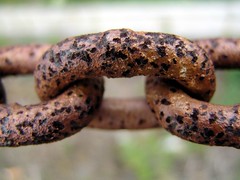Our company, LanguAges, provides educational resources to aid the teaching and learning of French in primary schools at Key Stage 2. We have created a compilation of three different games, The Clothes Game, The Class Card Game and The Shopping Game, and an Interactive CD, which form the LanguAges Pack.
All of our games are tailored to be fun, yet educational, comprehensively covering the Key Stage 2 curriculum, and helping to improve vital comprehension and speaking skills.
The initial idea around which our product is based sprung from a discussion with our business adviser in which we discovered that, as of next year, it will become compulsory for all primary schools to teach a modern foreign language at Key Stage 2. This meant that there would definitely be a market for teaching and learning tools.
We then sold more than £100 worth of shares in our company to get us up and running, which allowed us to design and develop our own prototype games. We tested these in several classes across Key Stages 2 and 3, and realised the LanguAges Pack was bound to be a great success.
Indeed the team has gone from strength to strength, selling several packs, and scooping up the ‘Best Sales and Marketing’ award at the MetroCentre Trade Fair, then going on to gain an order for 12 packs from Stockton Schools and ultimately securing a contract for 34 packs via the Hartlepool Local Authority.
This means that at the start of the next academic year, every Primary School in Hartlepool will have a full LanguAges pack – a true achievement for any company!
Furthermore, we have impressed pupils, parents and teachers alike. In fact the representative from the Hartlepool local authority, Tom Argument, said about us: “Their materials are creative, fun, very practical, and of a high quality. The group present themselves in a business-like manner and have real entrepreneurial potential.”
Our sales revenue is nearly £2,000 which has generated a healthy profit. Shareholders will receive at least a 100% return on their investment, and LanguAges will make a donation to charity from the net profit. However, we, as the directors, will be receiving a well-earned director’s bonus!
Young Enterprise has opened our eyes to the world of business. We learnt about the different departments of a company and the importance of each. Since our product was very time consuming and labour intensive it was essential that we learnt time and resource management. This was the first time many of us worked in a large group, therefore this experience enabled us to gain valuable team working skills. We learnt that communication and problem solving are two of the most vital components for the success of a business.
Of the many highs involved in the running of LanguAges, the development of our sense of team camaraderie has certainly been one of the most enjoyable. The shared responsibilities and experiences have led to solid professional relationships and firm friendships. These particularly flourished during the creative process of developing our product, which we all found both testing and fascinating.
Of course, one of the biggest thrills of business is the pursuit and accomplishment of sales, and this we enjoyed thoroughly with some of the team finding their niche in enthusiastic and mostly successful sales pitches. However, the extensive manual labour involved in the production of our product has at times been difficult to manage, but with close and effective teamwork, this challenge has been overcome.
Our hard work and determination has been recognised with a number of awards. As well as winning ‘Best Sales and Marketing’ at the MetroCentre Trade Fair, we also won Best Company Report at the Tees Valley Area Finals.
We have furthermore very recently forged strong links with an international company, who are acting as business advisers and supporters after appreciating LanguAges’ potential as a viable commercial product at the Area Finals. Working with them has been hugely beneficial and we look forward to the possibilities that this connection will lead to.
We realise that LanguAges has a huge amount of potential, and are currently investigating the many options available to us. Several possibilities are being considered, such as selling the idea, or even continuing the company even after the Young Enterprise Company Programme is over.
The prospect of mass producing the LanguAges Pack and even expanding the range to include a variety of other modern foreign languages is a very exciting one. We also appreciate that there is much scope to produce games, not only for younger or older students, but even for companies who wish to train their staff. After all, you have to think big to be big!
Needless to say, as a company, we have shown creative flair, dedication, and determination to reach the top. We have all greatly enjoyed the valuable experience that is the Young Enterprise Company Programme, and have learnt so much throughout the process. The experience and skills acquired will be invaluable to us in the future, whichever careers we choose to pursue.
So, congratulations to Faye Greason, Gayatri Sivakumar, Sreenag Krishnamoorthy, Jennifer Laws, Joseph Harrison, Charanya Ravi, Stuart Christie, Katie Wheelhouse, Francesca Tosson and Mariusz Cichomski, and of course to Madame Welsh and Linda Ward.
What a great idea – no wonder they won awards by the bucket load! And I will be very interested to follow the progress of the group -hopefully thye will expand the project to other languages and market it outside of the North East. As they say – every school in England could potentially use the product!!















